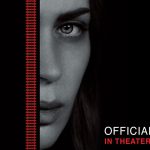The Book Thief (2013)
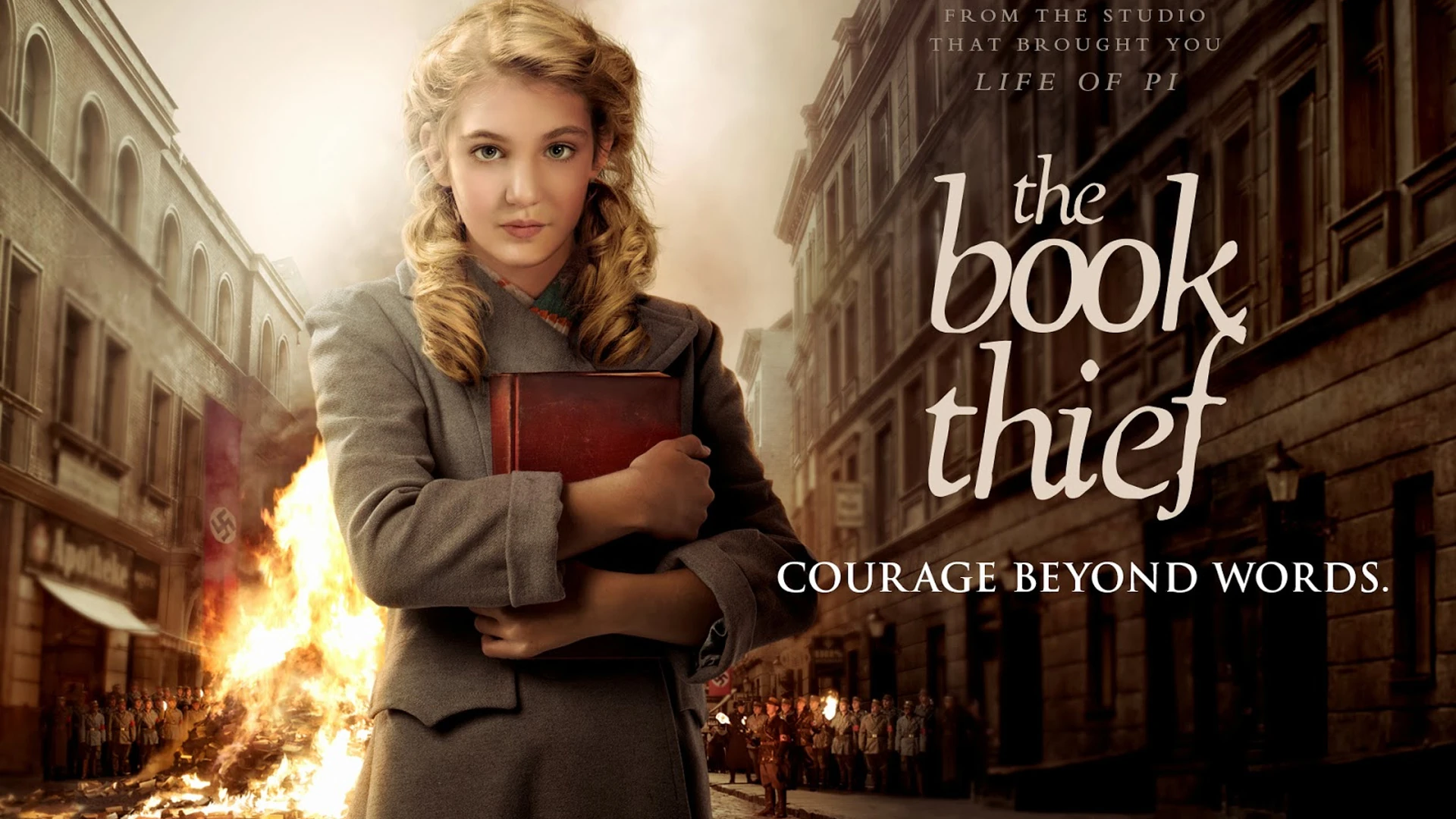
“The Book Thief” (2013) is a powerful war drama directed by Brian Percival, based on the 2005 novel of the same name by Markus Zusak. The film, a collaboration between American and German filmmakers, is set during World War II in Nazi Germany and tells the story of Liesel Meminger, a young girl who finds solace in books amidst the horrors of war. With standout performances from Geoffrey Rush, Emily Watson, and Sophie Nélisse, “The Book Thief” is a poignant and emotional tale of survival, love, and the power of storytelling.
The story follows Liesel, a young girl played by Sophie Nélisse, who is sent to live with a foster family in the small German town of Molching after the death of her brother. There, she is taken in by Hans and Rosa Hubermann (Geoffrey Rush and Emily Watson), a couple who provide her with love and support. Liesel’s life changes when Hans teaches her to read, and she begins to steal books, which become her means of escaping the brutal realities of war. Her love for reading grows as she finds solace in literature, even as the world around her becomes increasingly dangerous.
A central aspect of “The Book Thief” is the relationship between Liesel and her foster father, Hans Hubermann. Geoffrey Rush’s portrayal of Hans is both tender and strong, providing a steady source of warmth and guidance in Liesel’s life. Hans not only teaches Liesel how to read but also nurtures her spirit in a time of despair. The bond they share is heartwarming, and Rush’s performance brings a quiet strength to the character, making Hans an unforgettable father figure in Liesel’s life. The relationship between the two is one of the most emotionally resonant parts of the film.
In addition to Hans, Liesel’s relationship with Rosa Hubermann (played by Emily Watson) adds depth to the story. While Rosa is initially portrayed as a stern and gruff character, Watson’s performance reveals a more complex and loving side of Rosa as the film progresses. Despite her tough exterior, Rosa’s protective instincts toward Liesel and her ability to adapt to the harsh realities of the war show her strength and resilience. Together, the Hubermanns offer Liesel a safe haven in a world filled with violence and uncertainty.
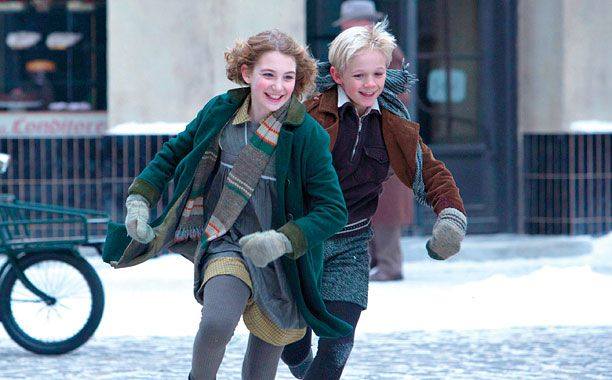
Another pivotal part of the film is the introduction of Max Vandenburg, a Jewish man whom the Hubermanns hide in their basement to protect him from the Nazis. Max, played by Ben Schnetzer, shares a deep bond with Liesel, and their friendship grows throughout the film. Their connection is built on mutual respect, and Liesel’s courage in helping Max highlights the themes of compassion and defiance in the face of tyranny. Max’s story adds an emotional layer to the narrative, and his relationship with Liesel is a testament to the power of human connection during times of persecution.
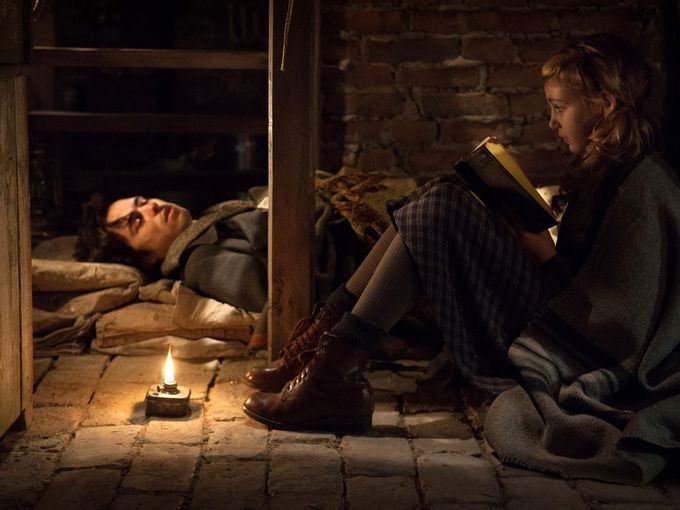
The film’s cinematography and visual style create a haunting atmosphere that complements the somber themes of the story. The bleak and war-torn setting of Nazi Germany is contrasted with the small moments of beauty and hope, often represented through Liesel’s love of books and the power of storytelling. The film’s use of color, light, and shadow enhances the emotional weight of the story, making it both visually captivating and deeply moving. The presence of Death, who narrates the story, adds a unique perspective on the fragility of life and the resilience of the human spirit.
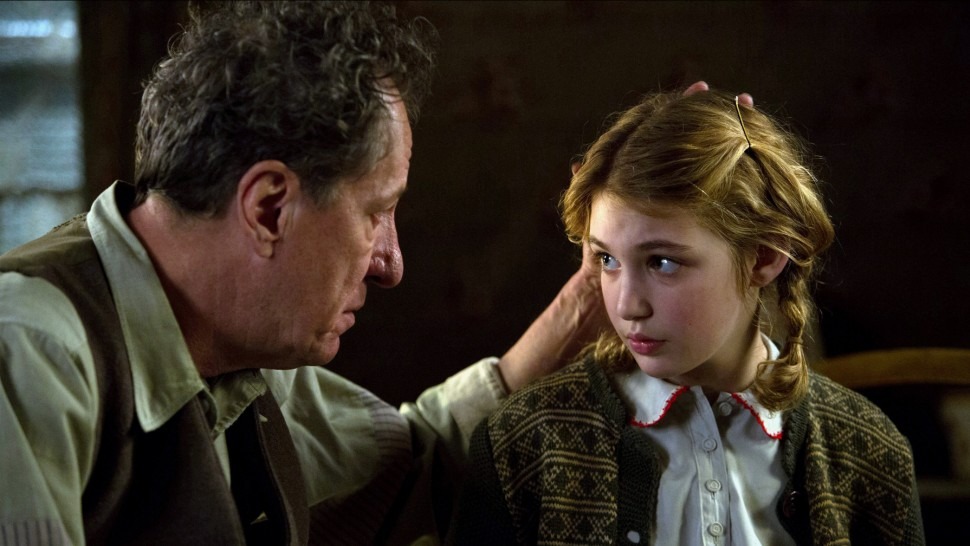
In conclusion, “The Book Thief” is a heartfelt and emotional film that explores the impact of literature and love in the darkest of times. Directed by Brian Percival, the film skillfully captures the themes of courage, resilience, and the importance of stories in shaping our lives. With remarkable performances from Geoffrey Rush, Emily Watson, and Sophie Nélisse, “The Book Thief” is a poignant reminder of the strength of the human spirit even in the face of war. It is a film that will resonate with audiences long after the credits roll, inspiring reflection on the power of words and the bonds that can form even in the most difficult circumstances.





